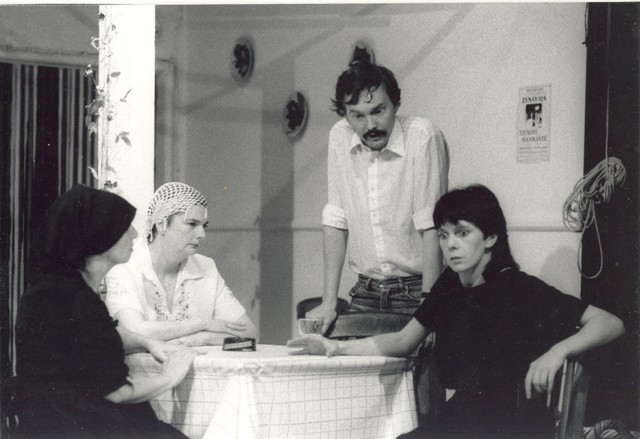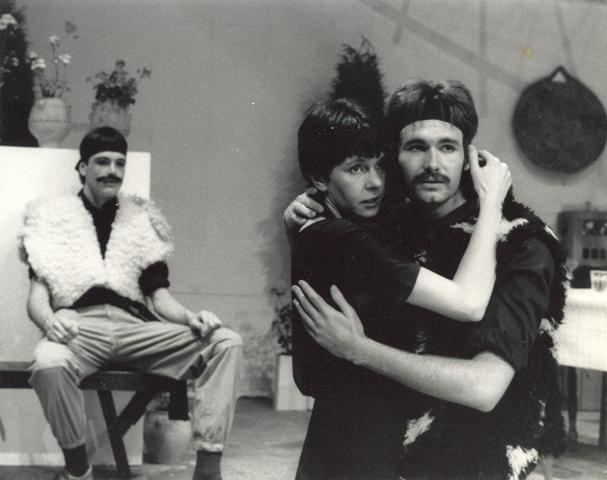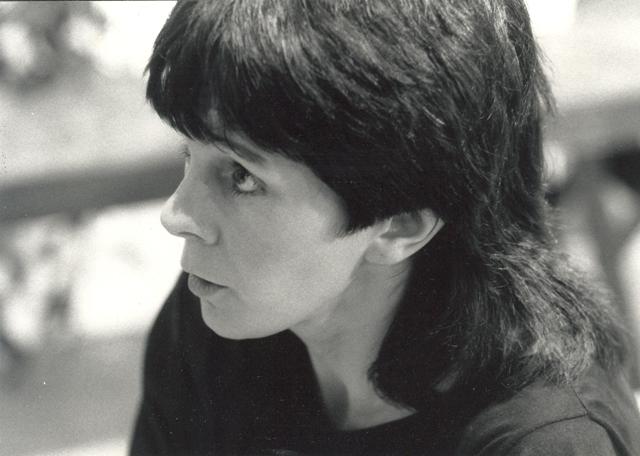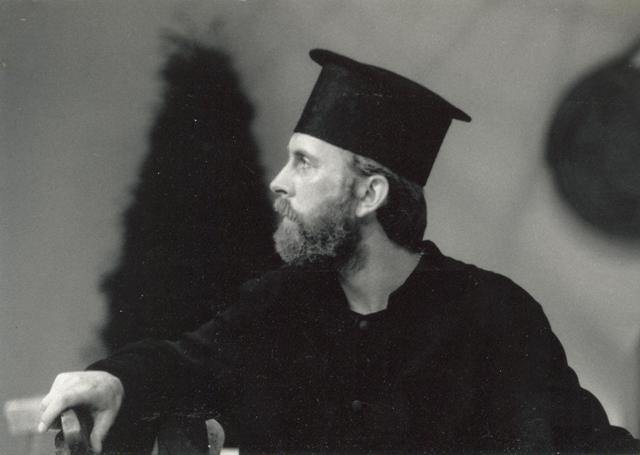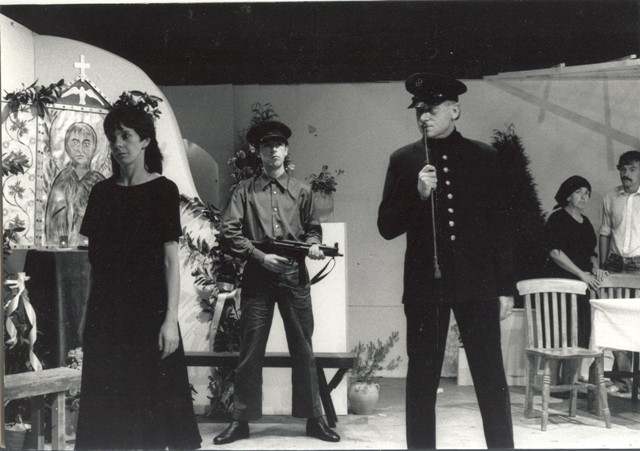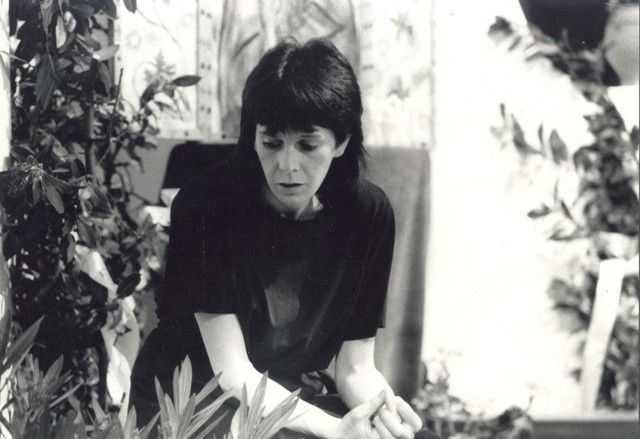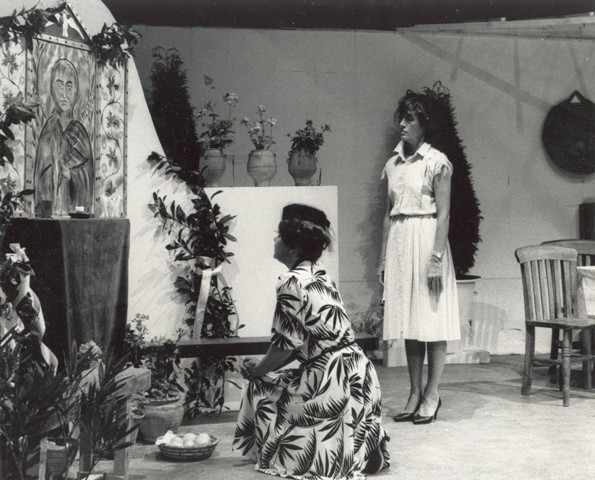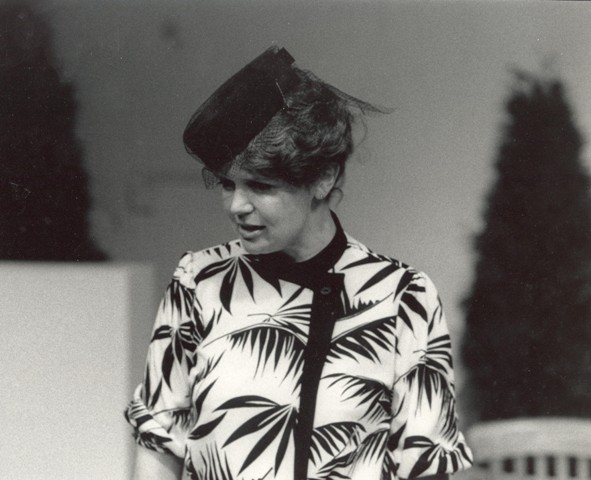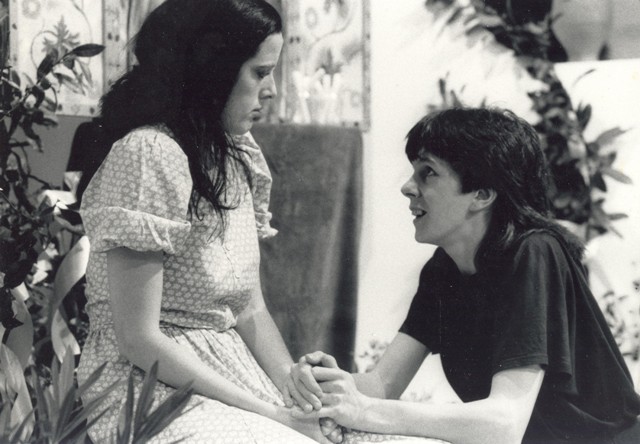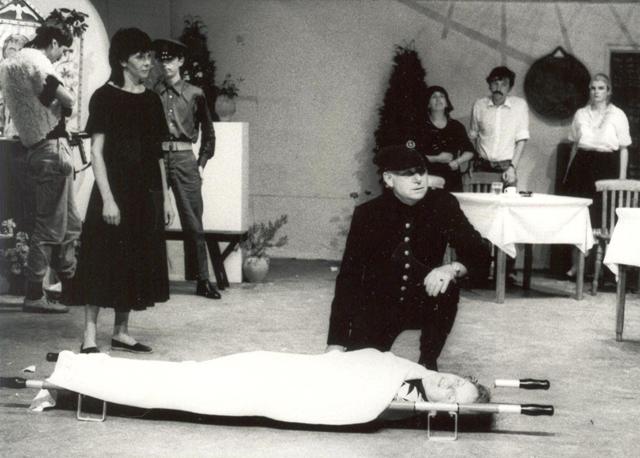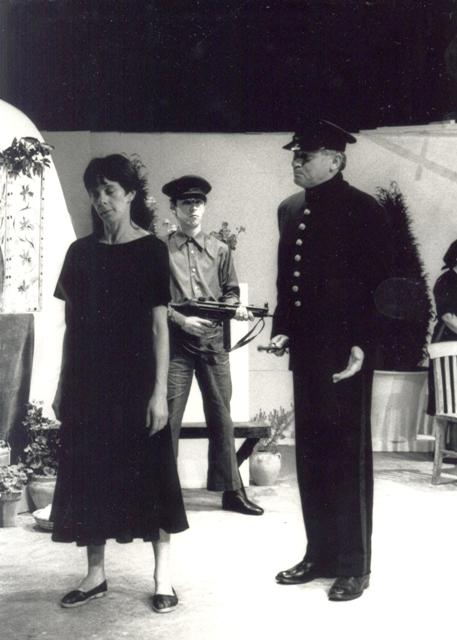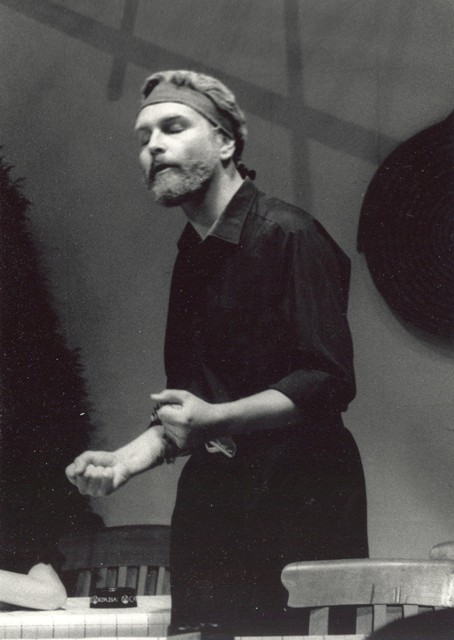The Bench Production
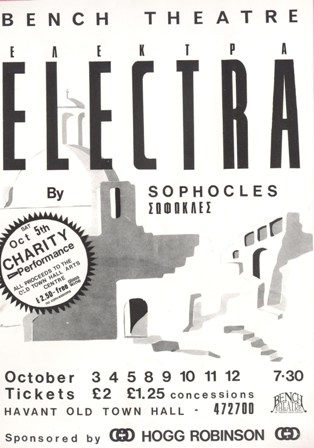
This play was staged at Havant Arts Centre, East Street Havant - Bench Theatre's home since 1977.
Characters
| Taverna Owner | Richard Fieldhouse |
| The Greek | David Penrose |
| Orestes | Ben Payne |
| Priest (Tutor) | Peter Holding |
| Pylades | Stephen Evans |
| Electra | Jo German |
| Taverna Owner's wife | Nicola Scadding |
| Mother | Janet Simpson |
| Chrysothemis | Judith Holding |
| Clytemnestra | Ingrid Corrigan |
| Companion | Robbie Cattermole |
| Aegisthus | Terry Cattermole |
| Bodyguard | Colin Hardy |
Crew
| Director | Isobel D'Arcy |
| Stage Manager | Robbie Cattermole |
| Assistant Stage Manager | Pete Woodward |
| Lighting and Sound | Tony Kellaway |
| Publicity | John Valentine |
| Front of House | John Scadding John Bohun |
Director's Notes
I have been a lover of both Ancient and Modern Greece, and the Greek tragedies. This led me to 'Electra', with its marvellous parts for women. While re-reading the play, it struck me that there were many resonances with the power struggles of Greece in the twentieth century - not least with the time of the Colonel's regime of the 1960s. While not making Aegisthus into one of those actual military governors, the idea of an oppressive military regime is there Orestes therefore has a touch of the resistance leaders of the Civil War in Greece following World War II, as well as a personal avenger.
The Greek Orthodox Christian religion lies easily on the old religion of the Greek gods. There are thousands of little Greek churches on hilltops, by streams, on beaches; easy to imagine they are on the same sites as the ancient shrines to gods of mountains, rivers and seas. Some saints have been directly transformed - Artemis has changed sex to become St Artemidos, Apollo becomes Saint Appollon. May Day celebrations in modern Greece are a direct descendant of the ancient rituals, and Greeks today mix invocations to the saints and the old gods indiscriminately. Even we still use the phrase "in the lap of the gods". So the shrine to Apollo in our production becomes the ikon of Saint Apollon, brought out of the church into the square and decorated on his Saint's Day. The old and new religions mix as old and new religions have always mixed. Electra pays tribute to Christian practice but still retains the religion of her beloved father.
The music for the production is Syrtaki folk dance and Rebetika. The songs are by Theodorakis. Miki Theodorakis' music was banned in Greece during the Colonel's regime. There was a case of students being imprisoned for listening to his songs. Theodorakis lived outside Greece, and only returned when the regime fell. Rebetika is the equivalent of 'blues' music and mostly concerns the oppressed, the imprisoned, and those addicted to hashish. The singers of Rebetika are also the poets. Syrtaki is the dance music that most visitors to Greece will be familiar with, thought often westernised with a 'pop' rhythm section.
Isobel D'Arcy
Reviews
The NewsJanice Macfarlane
Modern setting for an ancient power play
A timeless tragic masterpiece is given a modern history setting in the Bench Theatre's production of 'Electra' by Sophocles. Director Isobel D'Arcy, a confirmed Graecophile, has used her knowledge of 20th Century Greek history and culture to give the play nuances of the power struggle during the Colonels' regime of the sixties.
Hence, Aegisthus is an oppressive figure in the mould of Peron, Somosa, or Galtieri, and his mistress Clytemnestra - the Joan Collins of the piece - is a woman of ambiguous intention and ambition rather like Eva Peron. Her son Orestes returns to avenge the murder of his dead father as a young rebel, and is welcomed by the people as a freedom fighter. Another thoughtful innovation is to set the play outside an ordinary taverna, such as you would see on holiday in any small village, with a shrine combining the ancient gods with the Christian. Instead of a corporate group, the chorus is split into five ordinary character, whose individuality develops in different ways.
Notable of these was The Greek, played by David Penrose as a Zorba-esque figure. At the centre of the production is the lady herself, Electra. Jo German, one of the Bench's most accomplished actresses, plays this demanding role very brooding, brittle and tense - until the moving reunion with her brother Orestes, when she straightened into a hard taut figure who knew her hour had to come. While the first-night audience was disappointingly small, the company of 13 players managed to keep the tension level high for most of the action. Although Aegisthus did not exactly have the air of a man walking off to his death, Terry Cattermole has the problem of having to make a powerful impression in a very short time when things are at their most intense.
It's a sign of the times, I know - but such heavy human drama forces comparison with 'Dynasty' and 'Dallas'. Will we still think of Alexsis and J.R. in 2,000 years time? 'ELectra' is performed until Saturday, and from Tuesday to Saturday next week at the Old Town Hall Havant as the Arts Centre is now named.
The News, 4th October 1985
